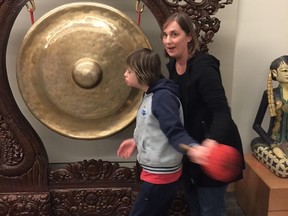OPINION: First, the Ministry of Children and Family Development should reach out, ask for ideas, and try to rebuild a basic level of trust with families.

In November 2022, Premier David Eby reversed the Ministry of Children and Family Development’s unpopular plan to build centralized generic service “hubs” for children with disabilities. Premier Eby then mandated Minister Mitzi Dean to “engage in deeper consultation with parents and caregivers, First Nations, Indigenous peoples, communities, experts, and other stakeholders to build a better system of supports for children and youth with support needs.”
This is an amazing opportunity to co-develop a transformed model that responds to the real and incredibly diverse needs of children and youth with many distinct disabilities and abilities. If we do this well, B.C. could be the national and international leader in upholding the human rights of children with disabilities.
Sign up to know what's really happening by reading daily editorials and commentary by British Columbia's opinion leaders
Thanks for signing up!
A welcome email is on its way. If you don't see it, please check your junk folder.
The next issue of Vancouver Sun Informed Opinion will soon be in your inbox.
B.C. has a daunting task — and a tremendous opportunity — and I hope the Ministry of Children and Family Development will heed the wisdom of people with lived experiences, as well as experts and practitioners.
So how should the ministry properly begin a co-development process, and what might a transformed system of services for children and youth with support needs look like?
First, the children’s ministry should reach out, ask for ideas, and try to rebuild a basic level of trust with families. Instead of unilaterally imposing a process, the ministry needs to ask everyone invested in this process what it should look like. It should also adopt a guiding principle that there will always be multiple ways for parents, caregivers, and practitioners to be involved. Dialogues with experts, virtual forums, roundtables across the province, and online opportunities to give feedback are needed. This is not a “one size fits all” process, but one where overwhelmed caregivers, practitioners and experts should be included, because their experience and ideas are valued.
Second, the ministry needs a joint working group that includes parents, organizations and government. This working group would be supported by an advisory body of experts. There needs to be exploration of best practices around the world in services for children with disabilities, and also a report on the standards that need to be met for compliance with the Canadian Charter of Rights and Freedoms, the United Nations Declaration on the Rights of Indigenous Peoples, and B.C.’s Human Rights Code.
If Minister Dean follows her mandate to consult more fully, it will become much more clear what our most compelling immediate, medium- and long-term priorities are for building a transformed system for children and youth with support needs. If decision-making is based on a solid foundation of best evidence, parental involvement, expert advice, and compliance with human rights standards, this will encourage consensus about moving forward to achieve shared priorities.
Third, it would be wise for the ministry to fulfill its promised “interim investment” in children by immediately expanding individualized funding to parents of children with Down syndrome, FASD, and other complex neuro-cognitive developmental disabilities. These families have been pleading for years for more support. Down Syndrome B.C. has specifically requested “immediately extending individualized funding to children with Down syndrome.” An interim investment in individualized funding could be a one-year pilot project to be evaluated and compared with other pilot projects.
Also, government needs to act decisively to simplify the diagnostic process. A diagnosis guides our understanding of what services will best fit each child’s specific needs. I know this from personal experience because my son, Darwyn, had Down syndrome and profound autism. When Darwyn was finally diagnosed with autism (a process that took almost two years), one of his health professionals said they knew he was autistic within 10 seconds of meeting him, but were not allowed to share that until it was official. Clearly, the diagnostic process could be made more efficient and he could have benefited earlier from therapies more tailored to his unique needs.
A diagnosis is vital for everyone who works with children — doctors, behavioural consultants, nurses, teachers, parents, caregivers, early childhood educators, therapists and, yes, even social workers. With focused investment we could “end the line” of children waiting for a diagnosis. An Ontario study found pediatricians are fully capable of diagnosing autism in 90 per cent of all cases. Streamlining the diagnosis process is possible. This would be an outstanding, world-leading, child-honouring achievement.
Parents with a diagnosis for their children and individualized funding will be creative and work hard to choose services and build the community of support they need for their children. Parents will have more power to support the programs they like and want, not have programs removed or imposed without consultation, as is happening in Kelowna with the threatened closing of the local Starbright Child Development Centre.
In 2023, the NDP government has the opportunity to prove it can work with families, Indigenous Peoples, and disability groups to provide better services to children and youth with support needs. If the Ministry of Children and Family Development can’t do this then there is no choice but to remove this responsibility. Parents of children and youth with support needs want to be part of a team that understands that we love our children, we know our children and we are a vital resource to be valued. This is the year the children’s ministry can build back trust by building relationships and working with everyone to build a better system of services. Surely that’s what we should expect from a Ministry that supports Children and Family Development.
Cathy Nash has worked as an advocate to support vulnerable children as a lawyer, investigator and parent. She lives in Victoria.


